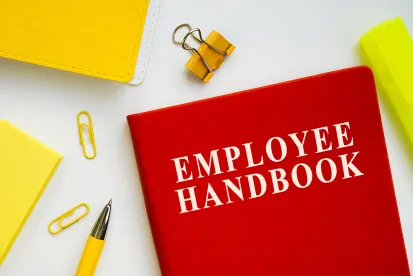In 2018, California passed Senate Bill 820, the STAND Act (Stand Together Against Non-Disclosure Act), in response to the #MeToo movement. SB 820 prohibited the use of confidentiality provisions in settlement agreements where the underlying claims were based upon sexual assault, sexual harassment, and workplace harassment or discrimination based on sex. The law did not extend to claims based upon other protected characteristics. Therefore, a confidentiality provision in a settlement agreement could not prevent an individual from discussing the factual information related to sexual harassment or sex discrimination allegedly experienced in the workplace, but could preclude an individual from discussing factual information related to harassment or discrimination based upon any other protected characteristic (e.g., race, age, gender, etc.). You can read our prior blog article here.
On October 7, 2021, California Governor Gavin Newsom signed Senate Bill 331 into law. SB 331 goes into effect on January 1, 2022. It expands the provisions in the 2018 STAND Act to broadly prohibit confidentiality provisions in settlement and separation agreements involving workplace harassment or discrimination on any protected basis, not just sexual harassment or sex. SB 331 also requires non-disparagement agreements contain specific language advising the individual of those rights. Therefore, all employment attorneys and employers will need to update their agreements to ensure they comply with the expanded laws beginning in 2022.
Confidentiality in Settlement Agreements
SB 331 expands Civil Procedure Code Section 1001, which currently prohibits confidentiality provisions in settlement agreements for civil actions and administrative complaints including allegations of sexual assault, sexual harassment, or workplace harassment or discrimination based on sex. With the enactment of SB 331, the prohibition on confidentiality will apply to any type of workplace harassment or discrimination claims, not just those based on sex. This includes harassment or discrimination based on race, religion, color, national origin, ancestry, disability, medical condition, familial status, gender, age, and all other protected characteristics.
SB 331 leaves in place the prior law’s provisions protecting the identity of the claimant. Specifically, if the claimant requests a provision protecting the claimant’s identity and any facts that could reveal the claimant’s identity, a confidentiality provision is lawful so long as a government agency or a public official is not a party to the settlement agreement.
Non-Disparagement Agreements
SB 331 also expands Government Code Section 12964.5, which currently prohibits employers from including a non-disparagement clause that bans an employee from disclosing information about sexual harassment or other related unlawful acts in the workplace, in exchange for a promotion, bonus, or continued employment. Beginning on January 1, 2022, SB 331 makes it unlawful, to include any provision that prohibits an employee from disclosing information about any type of harassment or discrimination or other conduct that an employee reasonably believes is unlawful in the workplace unless the agreement includes the following carve-out language in substantial form: “Nothing in this agreement prevents you from discussing or disclosing information about unlawful acts in the workplace, such as harassment or discrimination or any other conduct that you have reason to believe is unlawful.”
Separation Agreements
SB 331 also expands these requirements to any agreement related to a current or former employee’s separation from employment. Any such separation agreement must provide: (1) notice about an employee’s right to consult an attorney, and (2) reasonable time (at least 5 business days) for the consultation with an attorney. If an employee wishes to accept the agreement before the end of the 5-business-day period, it must be “knowing and voluntary” and not a result of improper inducement by the employer. This requirement does not apply to a negotiated agreement to resolve an underlying claim filed by an employee in court, before an administrative agency, in arbitration, or through an employer’s internal complaint process.
Other Considerations
Like SB 820, SB 331 allows the settlement or severance amount paid to remain confidential. It also permits confidentiality provisions in releases and agreements that aim to protect the employer’s trade secrets, proprietary information, or other confidential information that does not involve unlawful acts in the workplace.
Takeaways
Because SB 331 applies to agreements entered into beginning on January 1, 2022, employers should update their forms and think carefully about resolving potential or ongoing litigation prior to the new year.




 />i
/>i
